Autumn Statement: What it means for Londoners
- Published
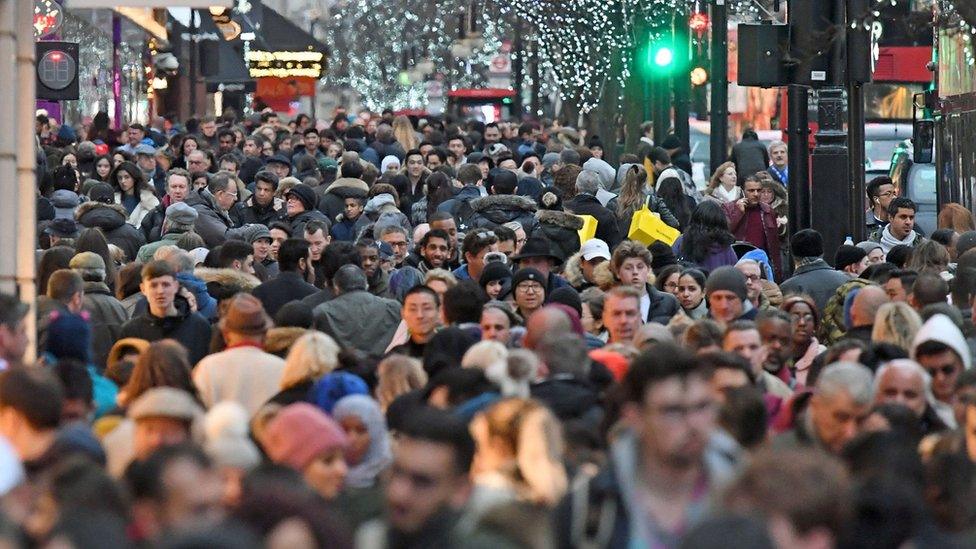
The Mayor of London said the government's spending plans will leave millions of Londoners worse off
Chancellor Jeremy Hunt has unveiled his package of spending measures in the Autumn Statement.
It includes help with energy bills and a rise in benefits, as well as an increase in taxes and changes to duties on electric vehicles.
Things may get worse before they improve though, with forecasts that the economy will shrink by 1.4% next year.
So how will Mr Hunt's changes affect Londoners, and how are the capital's organisations reacting?
Energy bills
Help with these will be extended, but will be less generous, Mr Hunt said.
There will be targeted support with the cost of living for those on low incomes, disability benefits and for pensioners.
Additional payments of £900 will be given to those on means-tested benefits, as well as £300 to pensioner households and £150 to people on disability benefits.
Those using alternative fuels like oil will also see support doubled to £200, the chancellor said.
Taxes and wages
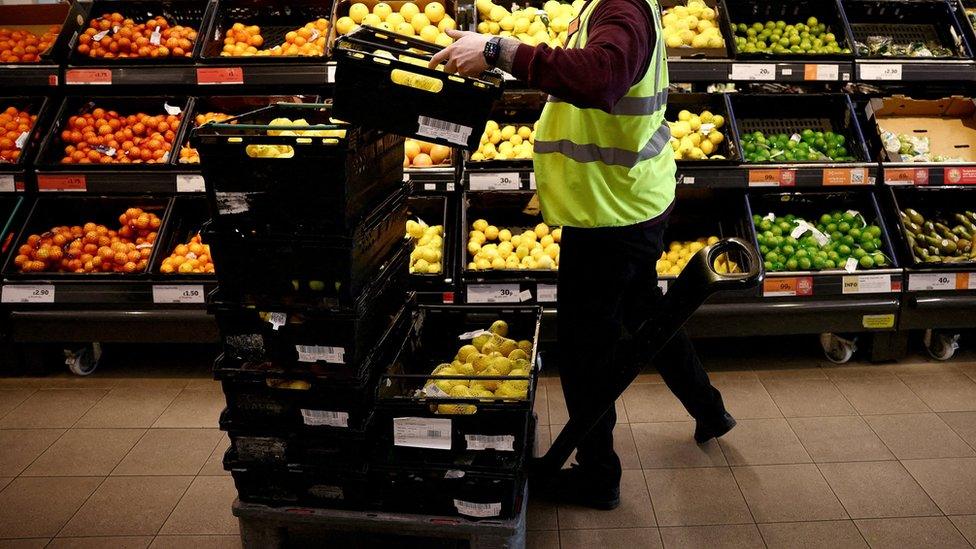
The National Living Wage will be increased from from April, benefiting thousands of Londoners
Two key changes to taxes were unveiled in Mr Hunt's speech. First, personal allowance and income tax thresholds will be frozen, which will mean millions of people pay more in tax.
Second, the point at which the highest earners start paying the top rate of income tax is being lowered, and the main national insurance and inheritance tax thresholds will also be frozen for a further two years until April 2028.
On wages, the chancellor confirmed the National Living Wage would increase from £9.50 an hour for over-23s to £10.42 from April.
This is expected to benefit hundreds of thousands of workers in London.
Sarah Pennells, consumer finance specialist at insurance company Royal London, said the cost of living crisis has meant many Londoners "have to make difficult decisions about their work".
"Our own research showed 1 in 5 people working over 50 to 60 hours and 1 in 8 had taken on an additional job," she said.
Benefits and housing
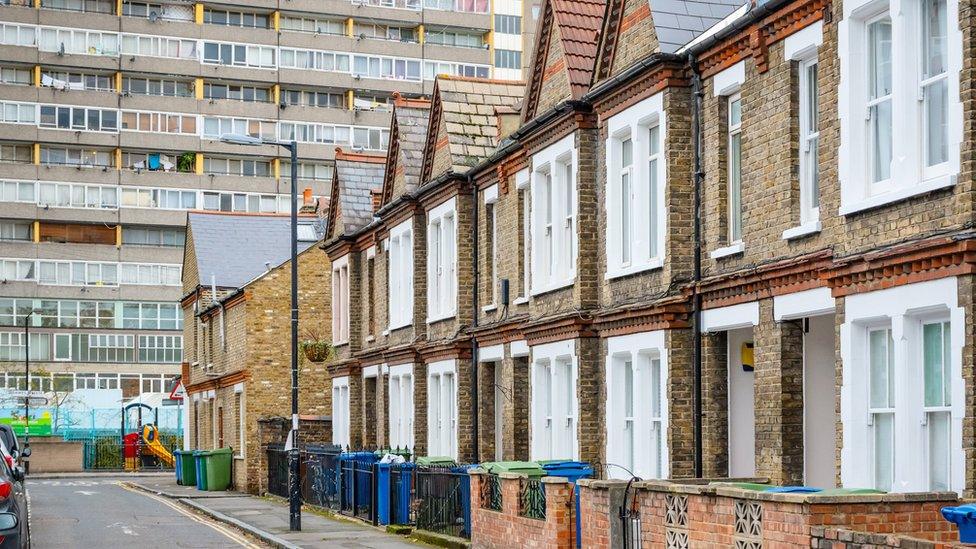
As part of the Autumn Statement, the government will cap social rent increases at 7% for 2023-2024
The chancellor also announced a 10.1% rise in benefits, tax credits and the state pension, in line with September's inflation figure.
However, he added that the government would ask a further 600,000 people on Universal Credit to meet a "work coach".
Families in social housing whose rents were set at 1% above the September rate of inflation will save an average of £200 because the government will cap social rent increases at 7% for 2023-2024.
The G15, which represents more than a dozen London housing associations, welcomed the cap and said it balanced the need to support residents with rising costs, adding it would "allow members to carefully consider rent and budget-setting".
Meanwhile, the proposed lifetime cap on social care costs in England which was due to take effect in October 2023 will be delayed by two years.
Public services
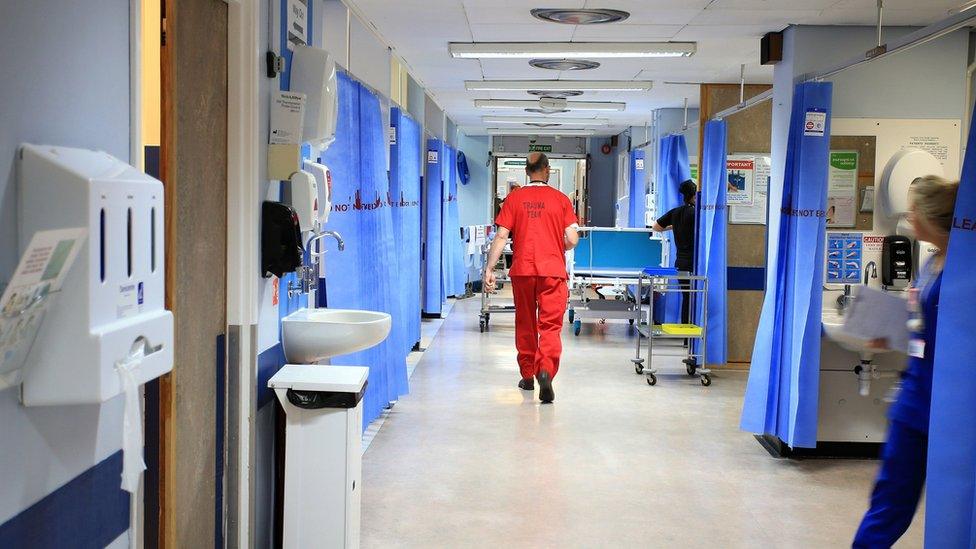
NHS doctors have told BBC London that the new funding represents about 2% of the overall NHS budget, amid inflation within the NHS of 16%
NHS England will receive £3.3bn in funding, which its chief executive said would help it meet its key priorities.
It is yet to be seen whether this funding will trickle down and have a beneficial impact on London's NHS patients, amid a waiting list crisis and issues with disrepair in some of the capital's hospitals.
London hospitals like St Helier, Hillingdon and Whipps Cross, which have experienced delays in being upgraded and rebuilt, will receive the funding promised as part of an existing national programme according to Mr Hunt.
However Siva Anandaciva from The King's Fund said if people visited those hospitals "you wouldn't see hospitals that were being regenerated, you'd be seeing hospitals that were crumbling and falling down around you.
"I think if people were hoping for the new hospital programme to be turbocharged, they'd be disappointed," he said.
"The budgets won't be cut but that's far from saying that the NHS will be given the funding to guild the new hospitals it so desperately needs."
Councils
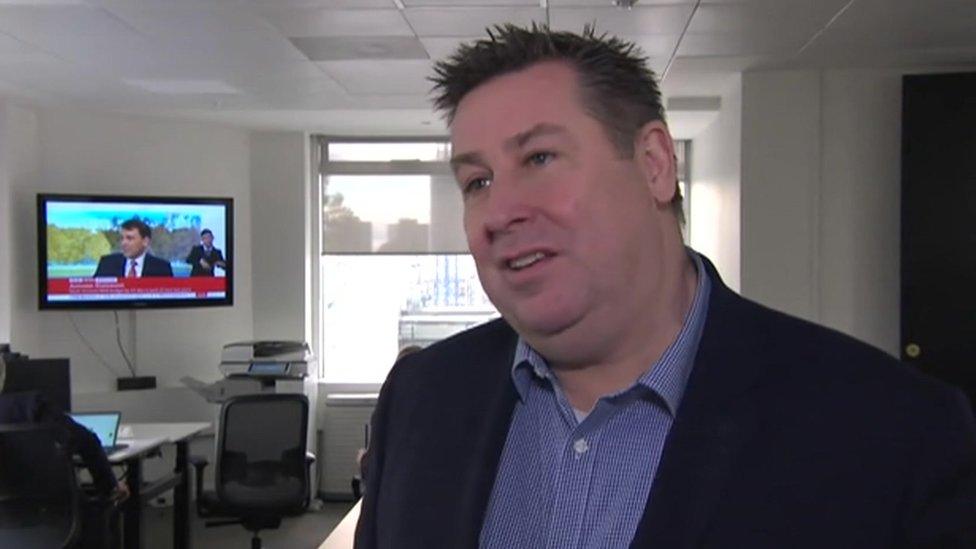
Steve Cowan says the council will "have to look at almost everything" in the budget to make savings
London's boroughs are already facing the need to find savings of £700m next year, and some leaders say Mr Hunt's announcements have made things worse.
While the government is telling councils they'll be able to raise Council Tax by 5% in future without a referendum, the Labour leader of Hammersmith and Fulham Council, Steve Cowan, says the chancellor's plans amounted to a further 10% cut to local council budgets.
"There are authorities going bankrupt all around the country, and this is not the way to deal with it," he said.
Mr Cowan added the approach to adult social care and child protection has been to "set about it with an axe, and there will be real consequences".
He said: "We provide adult social care for free, and it's been a cornerstone of our administration's programme.
"We'll always be determined to keep it but it was a real push with the budget before, so now looking at 10% cuts to that means we'll have to look at almost everything we're doing to keep it."

Analysis by Susana Mendonca, BBC Radio London's political reporter
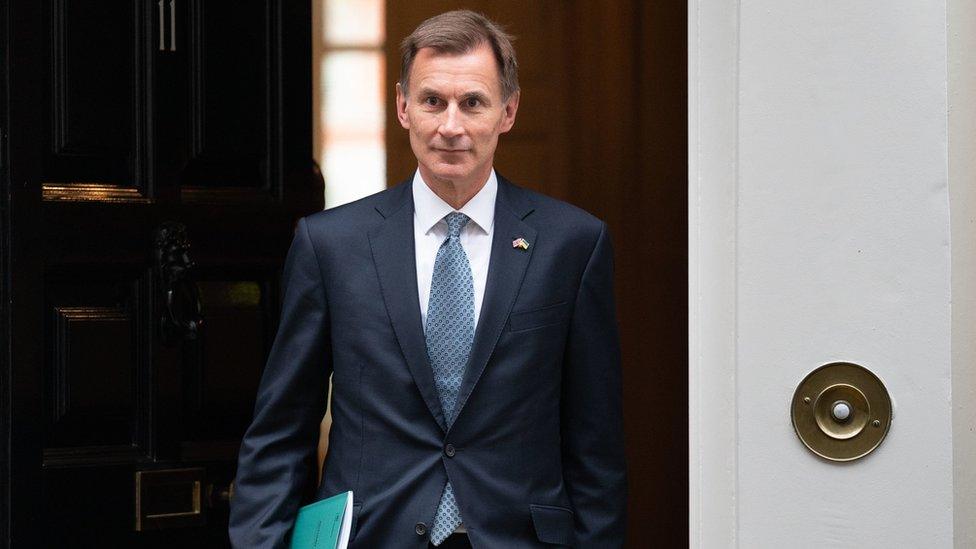
Chancellor Jeremy Hunt said the government "must make sacrifices" like families do every day with the cost of living in the UK
"We'll be poorer." Those were the words of a BBC Radio London listener just after the chancellor's Autumn Statement - and you can see why.
Millions more people could be paying more tax, and the help with energy bills is a lot less than Liz Truss had promised.
And while the government is telling councils they'll be able to raise council tax, the local government association for Greater London, London Councils, has told us they don't want to do this because it takes more money out of the pockets of households that are already struggling.
However, if the 33 local authorities across London are already facing a combined £700m black hole in their budgets next year, they may not have much choice - and even if they all raised their council tax by 5%, they say that wouldn't fill that gap.
Some good news, or at least a reprieve, is that the much trailed public service spending cuts expected today appear to have been delayed for a couple of years.
The £2.2bn a year for education over the next two years will certainly be some comfort for the headteacher I spoke to at Barn Croft Primary School in Walthamstow, who told me most London schools are now running a budget deficit and need more support if they're to help children from families that are struggling with the rising cost of living.

London's mayor Sadiq Khan said: "The policies announced today will only result in more families facing further tough choices between heating and eating this winter - and with inflation already so high it cannot be right that those on benefits will need to wait until April to see an increase in their payments.
"It should not have been this way. The Chancellor should have come forward with some simple measures that would have made a difference - such as providing free school meals to all primary school children and giving me the power to freeze private rents."
Click here for more details on other measures, including changes to Vehicle Excise Duty on electric vehicles.
Related topics
- Published17 November 2022

- Published17 November 2022


